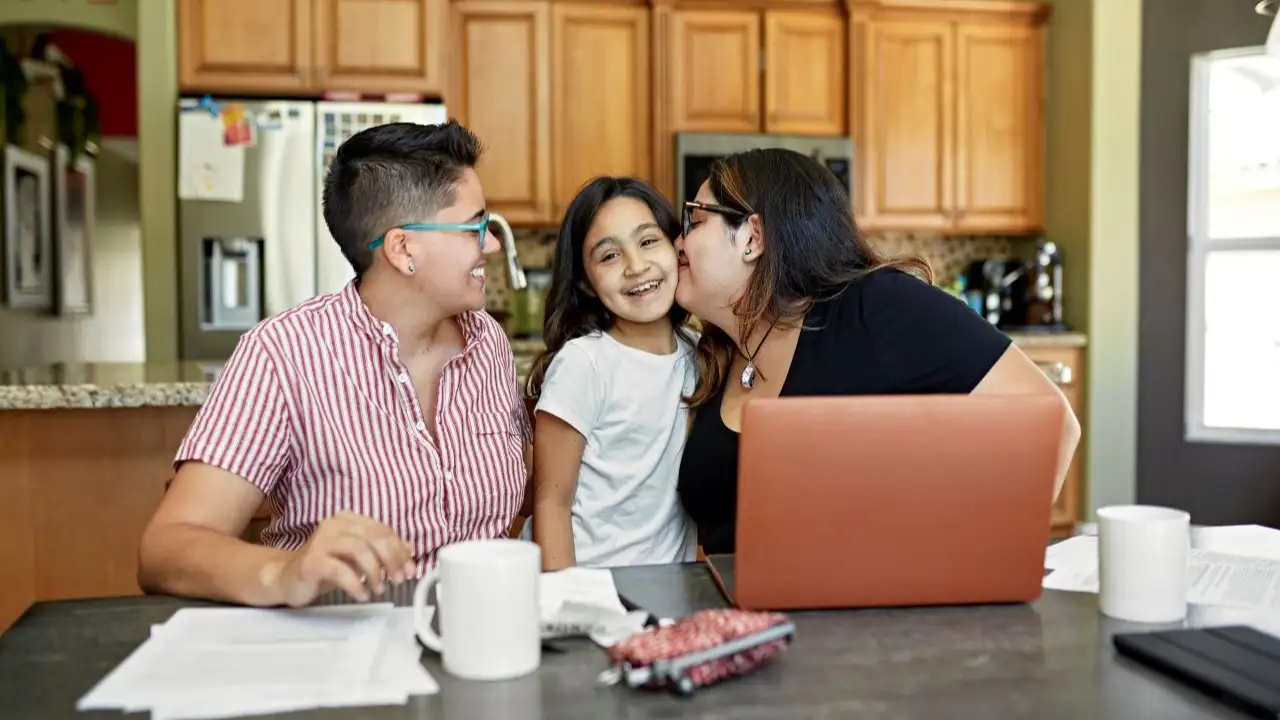
Money Tips & Education
How to talk to your kids about money
Oct 27, 2024
Written by
Reviewed by
Key takeaways:
Kids who learn basic money skills—like how to budget and save from an early age—could have an advantage as adults.
It's important to talk to kids about money on a regular basis. It’s not a one-and-done conversation.
Parents can reinforce money conversations through play, real-life examples, and modeled behavior.
Kids are naturally curious, and it's never too early to talk to them about money. When you educate kids about personal finance from a young age, you help them build a solid foundation for their adult years.
The key to successful money talks with kids is to keep them age-appropriate. These tips can help you start the conversation—and keep it going.
1. Start early
Young children are like sponges: they readily absorb information. Preschool age is a great time to introduce them to basic money concepts, like how to identify coins and paper money, and how to count them.
Once they have it down, you can build on that knowledge and talk to kids about:
Where money comes from
How you use it to buy things
What it means to save money
Kids learn from hands-on activities and play, so use that to your advantage.
For example, you might challenge them to set a small goal of saving $5. You could help them set up a jar or piggy bank to collect money in. Then, each week, sit down with them and watch them count their money to check on how close they are to their goal.
2. Use real-world examples
Money takes time to master, and kids benefit when you regularly talk to them about it. One way to do that is to look for opportunities in your daily life to chat about money.
Let’s say you and your kids are at the grocery store. You could ask them to look for prices for the items on your list. Ask them to find similar items and figure out which ones cost more or less money.
Maybe you have to shop back-to-school sales for supplies. You could sit down with the kids to make a list of need-to-buy items, then have them list the things that are wants.
When it's time to shop, walk them through how much you have to spend and the cost of each item on the list. Have them add up the needs and, if there's money left over, decide what to spend on extras.
3. Teach by example
Sometimes the best way to talk to kids about money is to show, rather than tell. That means you model the money behaviors you want them to adopt.
How do you do that? Here are some ideas.
Budget. A budget is a plan for how to spend money each month. You could talk to your kids about how you make your budget or better yet, let them watch you do it. For extra credit, you could show them how to make a budget on paper, with a spreadsheet, or in a free budgeting app.
Save. Kids need to understand how to save money and why everyone should save. A good way to show savings is to set a family goal—a dream vacation or something for the house—and track it together. As kids get older, you could talk to them about how to save for college or retirement.
Pay bills. It's necessary to pay bills each month, and it's a task kids should know how to do. You could show them how to write a check, schedule online bill payments, and how to keep track of bill due dates with a budget app or a calendar.
4. Give them money to manage
A tangible way for kids to learn about money is to give them some to manage. For some parents, that means a regular allowance. For others, it might mean a reward for good grades or cash for birthdays and holidays.
Kids should understand where the money they have comes from. If you pay an allowance for chores, you could talk to them about how it's similar to the way that you go to work to earn money.
You could also help them decide how to manage what they have. For example, you might encourage them to divide their money into three pots:
Money to save
Money to spend
Money to give
This system echoes the 50/30/20 budget, which divides your money by wants, needs, and savings/debt repayment.
Talk to kids about why it's important to give their money a purpose and what each pot represents. If you want to incentivize them to add to the "save" pot, you might offer to match some of what they put in. If they save $1, you add $1. You can set limits, of course.
That's a fun way to encourage kids to save and motivate them to work hard towards their money goals.
5. Share your stories
It's normal to have money moments in your past that you consider pivotal. Some financial memories are good; others might be bad. What you have on your side is the benefit of hindsight.
Talk to your kids about your experiences with money, what you learned, what you're proud of, and what you might have done differently. You could share a little detail or a lot, whichever is comfortable for you and age-appropriate for them.
These conversations could make money seem more relatable to kids. And as they grow older, they may be inclined to return the favor and bring their money stories to you for advice.
Help kids get a financial head start
You talk to your kids about their friends, school, their interests—so why not add money to the mix? Whether your kids are younger or older, money is an important topic to cover. These tips can help you approach it confidently so your kids get a thorough financial education.
Written by
Rebecca is a senior contributing writer and debt expert. She's a Certified Educator in Personal Finance and a banking expert for Forbes Advisor. In addition to writing for online publications, Rebecca owns a personal finance website dedicated to teaching women how to take control of their money.
Reviewed by
Jill is a personal finance editor at Achieve. For more than 10 years, she has been writing and editing helpful content on everything that touches a person’s finances, from Medicare to retirement plan rollovers to creating a spending budget.
Related Articles
Some credit checks affect your score, but others don’t, even from the same lender. We’ll explain when and why credit checks can affect your credit.
Myth-busting: you don’t need to carry a credit card balance to have good credit! Learn how credit utilization affects credit scores.
Ready to take control of your money? Learn what a budget can do for you and how to make one.
Some credit checks affect your score, but others don’t, even from the same lender. We’ll explain when and why credit checks can affect your credit.
Myth-busting: you don’t need to carry a credit card balance to have good credit! Learn how credit utilization affects credit scores.
Ready to take control of your money? Learn what a budget can do for you and how to make one.


